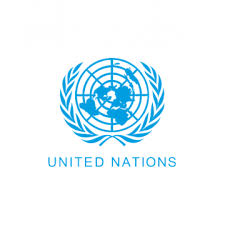The United Nations has urged collective global action to strengthen urban resilience and promote inclusive cities in the face of growing challenges of conflict, displacement, and climate change.
The call was made on Monday during the commemoration of the 2025 World Habitat Day at the UN Office in Nairobi, Kenya, monitored virtually by correspondent.
The event, held annually on the first Monday of October, brings together stakeholders to reflect on the state of cities and the right of all people to adequate shelter.
UN Secretary-General António Guterres, in a message delivered by Stephen Jackson, UN Resident Coordinator in Kenya, said cities bore the brunt of today’s crises and emergencies.
He noted that conflict, political instability, and the climate emergency had displaced 123 million people, most of whom sought refuge in already overstretched urban areas.
“About one in eight people live in informal settlements, and more than 300 million have no home at all,” Guterres said.
He added that strained health, water, and transport systems heightened the risk of new disasters but emphasised that cities remained the best platforms for driving inclusion, growth, and cultural development.
Guterres commended the resilience of mayors, local governments, women, youth, and urban communities tackling these challenges, saying, “A city is more than bricks and mortar; it is the promise of home. Let’s build stronger cities that ensure safety and belonging for all.”
Kor Ming, Malaysia’s Minister of Housing and Local Government and President of the UN-Habitat Assembly, echoed the call, stressing that crises present opportunities to rebuild better and stronger.
He cited UN data showing that 182 million people had been displaced globally, with 60 per cent seeking refuge in cities, thereby placing enormous strain on local systems.
“I call on member states to strengthen cooperation and equip city mayors with tools to ensure no one and no place is left behind,” he said, urging continued support for UN-Habitat’s mission to advance adequate housing for all.
UN-Habitat Executive Director Anacláudia Rossbach said disasters damaged or destroyed over 92,000 essential facilities annually, causing 1.6 million service disruptions worldwide.
She warned that nearly three billion people faced housing challenges, with one billion living in slums and informal settlements, and more than 300 million experiencing homelessness.
“We must place housing, land, and basic services at the centre of urban crisis responses,” she said, adding that local governments remained key to long-term resilience and community rebuilding.
Rossbach noted that UN-Habitat’s 2026–2029 Strategic Plan prioritises crisis response across displacement, disaster, conflict, and climate fragility.
At the event, recipients from Nigeria, Lebanon, Portugal, and Mexico received the UN-Habitat Scroll of Honour Award for exceptional contributions to urban development, including leadership in post-conflict reconstruction and shelter provision.
(NAN)


